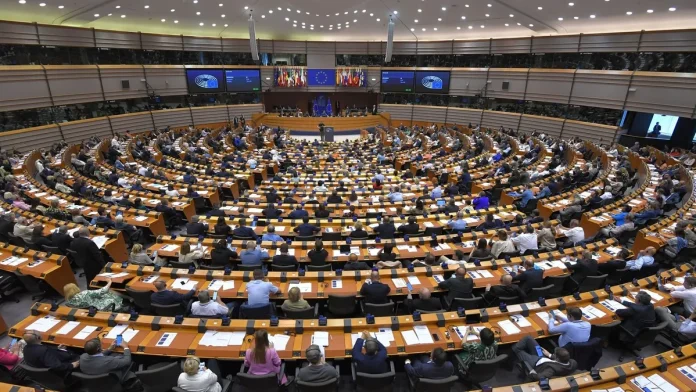The European Parliament completely rejected a proposal on the EU’s pesticide reduction plan, drawing regret from green groups but welcomed by EU farmers.
A controversial proposal on sustainable use of pesticides regulation (SUR) aims to halve the use and risk of pesticides by 2030, as set out in the EU’s food policy known as the Farm to Fork strategy.
The European Parliament attempted to develop its final position on the file, but lawmakers ultimately voted to reject the text entirely thanks to a series of amendments that repealed key elements of the SUR.
For Green MEP Sarah Wiener, who oversaw the document, the rejection was a “bitter blow” to environmental protection and public health. She defended the decision to vote against the “amputated” final text, saying it was “not one we could in good conscience vote for.”
Liberal MEP Pascal Canfin, chairman of the parliament’s environment committee (ENVI), stated that the bar for the final compromise was “so low” that it would have “backtracked the [2009] sustainable use directive.”
Marilda Dhaskali, EU agricultural policy specialist at BirdLife Europe, criticised EU politicians who “chose a path that promises a grim and challenging future for both us and our children.”
However, EU farmers’ association COPA-COGECA welcomed the result of the vote, condemning the “gap between political rhetoric and the lack of concrete solutions” of the file.
“With [this rejection], MEPs sent a decisive message: the lack of dialogue, the imposition of objectives from above, the refusal to assess the impact and the lack of funding for agricultural proposals must end now.”
Centre-right MEP Peter Liese, the Conservative representative on the environment committee, described the day as “a good day for farmers and all those who believe that the EU must hold back on new burdens in the current difficult global situation.”
The reduction and careful use of plant protection products are important to me, but this proposal was absolutely useless.
However, the vote raised uncertainty about the next steps, as it is extremely rare for the Parliament to reject a Commission proposal on first reading without sending it back to the lead committee.
The most likely options are for the EU executive to intervene to withdraw its own proposal or for EU ministers to decide to continue working on the file regardless of the vote outcome in the European Parliament.
A Commission spokesperson stated that the EU executive “takes note” of the vote, but declined to disclose whether it would now withdraw the proposal entirely. At the same time, an EU Council spokesman said EU ministers intended to “continue working” on the plan.
The Spanish presidency had previously hoped to reach agreement on its position in December, but member states split on a number of issues. If the Spanish manage to reach agreement on the file, its position would form the basis of an “early second reading” procedure.”
It requires approval, rejection or amendment of the Council text, which would have to be approved by an absolute majority of MEPs.
